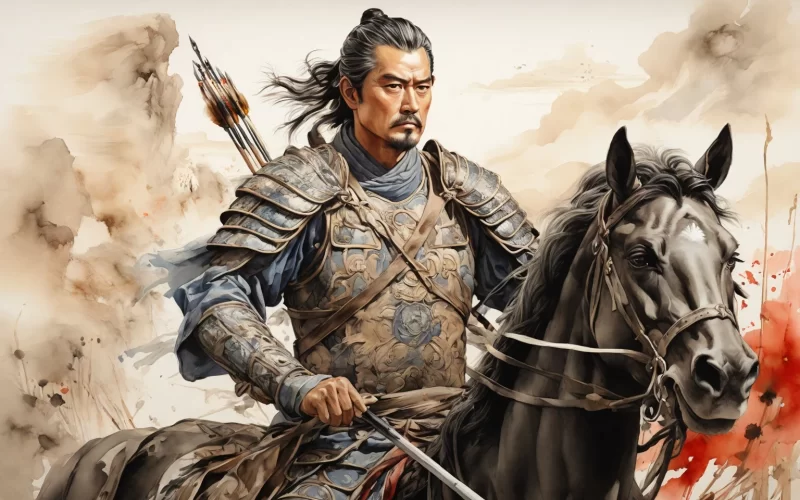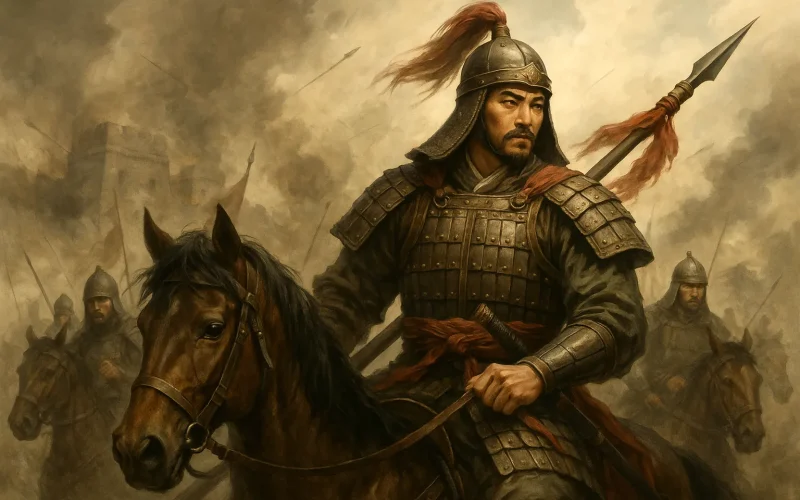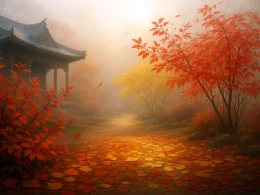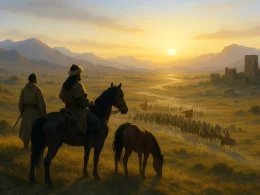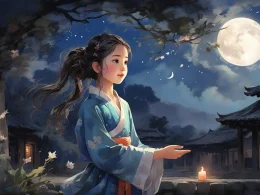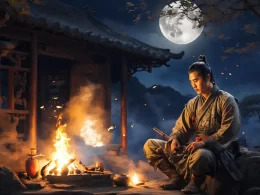The bow you carry should be strong;
The arrows you use should be long.
Shoot before a horseman his horse;
Capture the chief to beat his force,
Slaughter shan't go beyond its sphere;
Each State should guard its own frontier.
If an invasion is repelled,
Why shed more blood unless compelled?
Original Poem:
「前出塞九首 · 其六」
杜甫
挽弓当挽强,用箭当用长。
射人先射马,擒贼先擒王。
杀人亦有限,列国自有疆。
苟能制侵陵,岂在多杀伤。
Interpretation:
"Song of the Frontier" is a set of nine poems written by Du Fu during the Tianbao era, inspired by Ge Shuhan’s campaign against the Tubo. These poems critique Emperor Xuanzong's policy of reckless military expansion. The sixth poem stands out for its satirical commentary, reflecting the poet’s profound reflections on war and his rational perspective on border conflicts. This poem has become a classic among Tang dynasty yuefu poetry.
First Couplet: “挽弓当挽强,用箭当用长。”
(Pull the strongest bows and use the longest arrows.)
The poet uses straightforward, practical military advice to emphasize the importance of weaponry in warfare. The choice of "strong" and "long" implies that war relies not only on manpower but also on robust equipment. These concise and rhythmic lines resemble military proverbs, underscoring the fundamental requirements for success in battle.
Second Couplet: “射人先射马,擒贼先擒王。”
(To defeat the enemy, first shoot their horses; to capture the bandits, seize their leader.)
Borrowed from military axioms, these lines vividly outline the principles of warfare tactics. The steps of "shooting horses first" and "seizing the king" highlight strategic vision and the importance of precision in targeting. These lines embody wisdom in prioritizing decisive actions to achieve victory efficiently.
Third Couplet: “杀人亦有限,列国自有疆。”
(There should be limits to killing, as nations have their own boundaries.)
Here, the poet philosophically asserts the need for restraint in warfare and respect for national borders. He critiques blind expansionism and excessive bloodshed, advocating for adherence to ethical principles in conflicts. This sentiment expresses a longing for peace and order.
Fourth Couplet: “苟能制侵陵,岂在多杀伤。”
(If aggression can be curbed, why resort to mass slaughter?)
With a powerful rhetorical question, the poet articulates his core belief: the true purpose of war is to repel invasions and maintain peace, not to glorify violence or inflict needless suffering. This advanced perspective transcends conventional views on war, embodying the poet’s humanitarianism and advocacy for peace.
Writing Features:
- Proverbial Language: The first half adopts military proverbs that are concise, logical, and easy to remember.
- Philosophical Reflection: The latter half shifts to philosophical reasoning, blending personal sentiments with moral responsibility.
- Contrast in Structure: The poem transitions from discussing tactics to ethical considerations, creating a striking juxtaposition.
Overall Appreciation:
This poem uses concise yet powerful language to reveal the principles and ultimate purposes of war. From highlighting military preparation to contemplating the ethics of conflict, the poet demonstrates exceptional wisdom and insight. Du Fu refrains from glorifying war, instead offering a critical perspective that invites profound reflection on war and peace. The poem’s rhythmic quality and depth of thought make it a timeless masterpiece.
Insights:
The poem’s ideas remain relevant today, advocating for wisdom and strategy in resolving conflicts while minimizing unnecessary suffering. The true aim of conflict should be to safeguard peace and protect the homeland, not to flaunt power or pursue expansionist ambitions. This timeless call for peace holds universal significance, encouraging contemplation and inspiring action across generations.
Poem translator:
Xu Yuan-chong (许渊冲)
About the poet
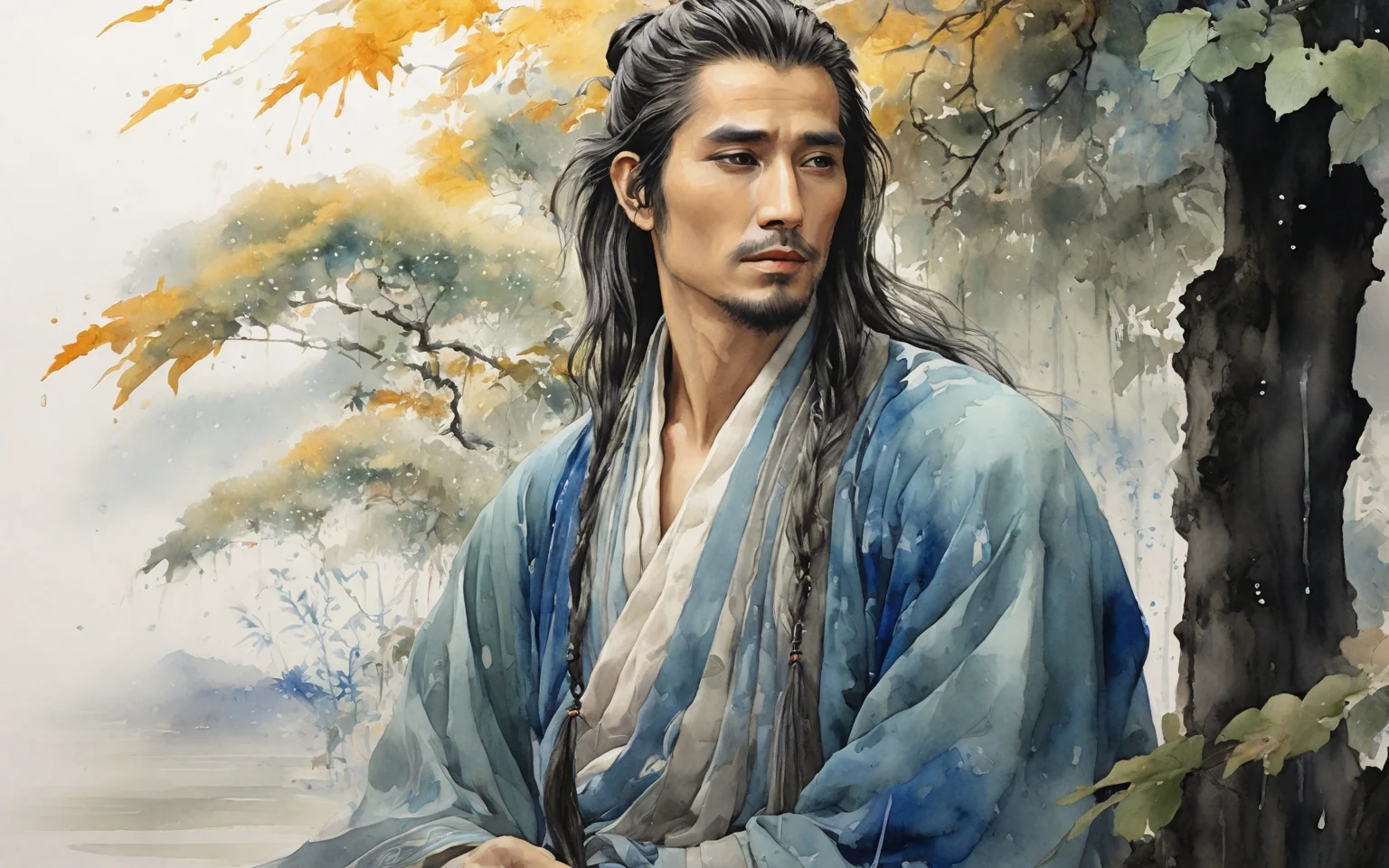
Du Fu (杜甫), 712 - 770 AD, was a great poet of the Tang Dynasty, known as the "Sage of Poetry". Born into a declining bureaucratic family, Du Fu had a rough life, and his turbulent and dislocated life made him keenly aware of the plight of the masses. Therefore, his poems were always closely related to the current affairs, reflecting the social life of that era in a more comprehensive way, with profound thoughts and a broad realm. In his poetic art, he was able to combine many styles, forming a unique style of "profound and thick", and becoming a great realist poet in the history of China.






